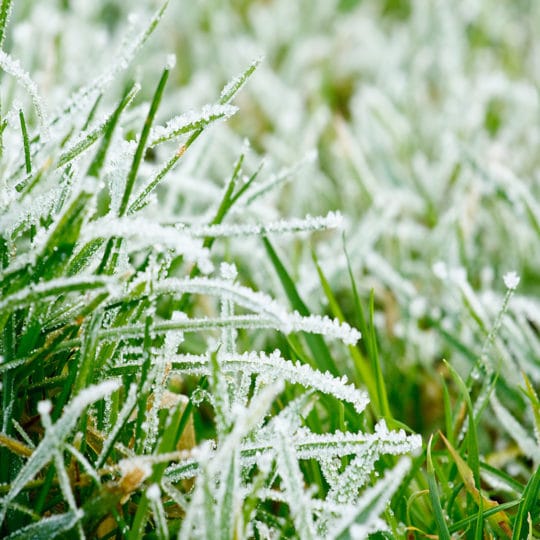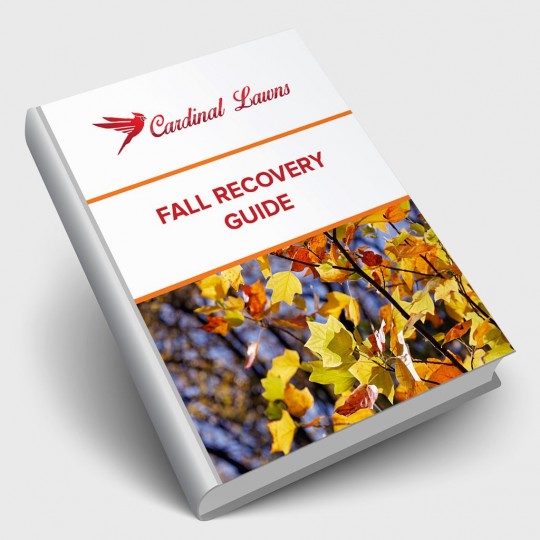Choosing the Right Winter Lawn Fertilizer
Help Prepare Your Lawn for Spring
Posted
December 6, 2018

When the weather outside is frightful, a properly fertilized lawn is still delightful. Choosing the right winter lawn fertilizer will help your grass get through a tough season of frost and snow, and bounce back better come spring.
What is Winter Lawn Fertilizer?
Winterizers are a special blend of fertilizer used to prepare your lawn for the winter months. Formulated with nitrogen and other ingredients, it helps your lawn store food for the winter and ensure there’s enough for roots and blades to grow healthy in the spring.
Apply winterizers when the grass stops growing—when you usually stop mowing. Depending on what area you live in, this could be in mid August to the end of November. Read all instructions for the type of formula you choose, and evenly distribute throughout your lawn.
Types of Winter Lawn Fertilizer
There are different types of fertilizer that work best depending on the climate and soil type. Each formula should have a balance of the main nutrients a lawn needs to promote growth:
• Nitrogen (N) for leaf growth
• Phosphorus (P) for root growth
• Potassium (K) for flowering and fruiting
Here are some of the winter lawn fertilizers to choose from.
- Slow-release fertilizers. Nitrogen is released more gradually to help stimulate early grass growth in the spring and a thick healthy lawn. Apply before the soil temperature drops below 50 degrees F, or else the grass will already be dormant and unable to use the nutrients properly.
- High-level potassium fertilizers. These help promote more root hardiness on all types of grasses.
- Organic fertilizers. Rake these fertilizers into the lawn in the fall to help maintain the level of nutrients needed.
- Potash fertilizers. Help stimulate turf growth and repair any sun damage by applying this in the fall so the turf can recover before dormancy. Higher levels of nitrogen in this formula helps to promote repair.
Winterizer Tips
No matter which type of winter lawn fertilizer you choose, make sure you use it properly and don’t over do it. This can cause chemicals not absorbed into the soil to wash off into water sources, or cause irreparable root damage. You should also protect yourself during applications by wearing gloves and avoid inhaling any airborne particles. For more fertilizing tips, contact the lawn specialists at Cardinal Lawns.

Download Your FREE Fall Recovery Guide
Summer’s extreme conditions can take a toll on your grass and its health. Take some time to learn how to bring your lawn back to life. This handy guide teaches you what needs to be done for a full fall recovery.